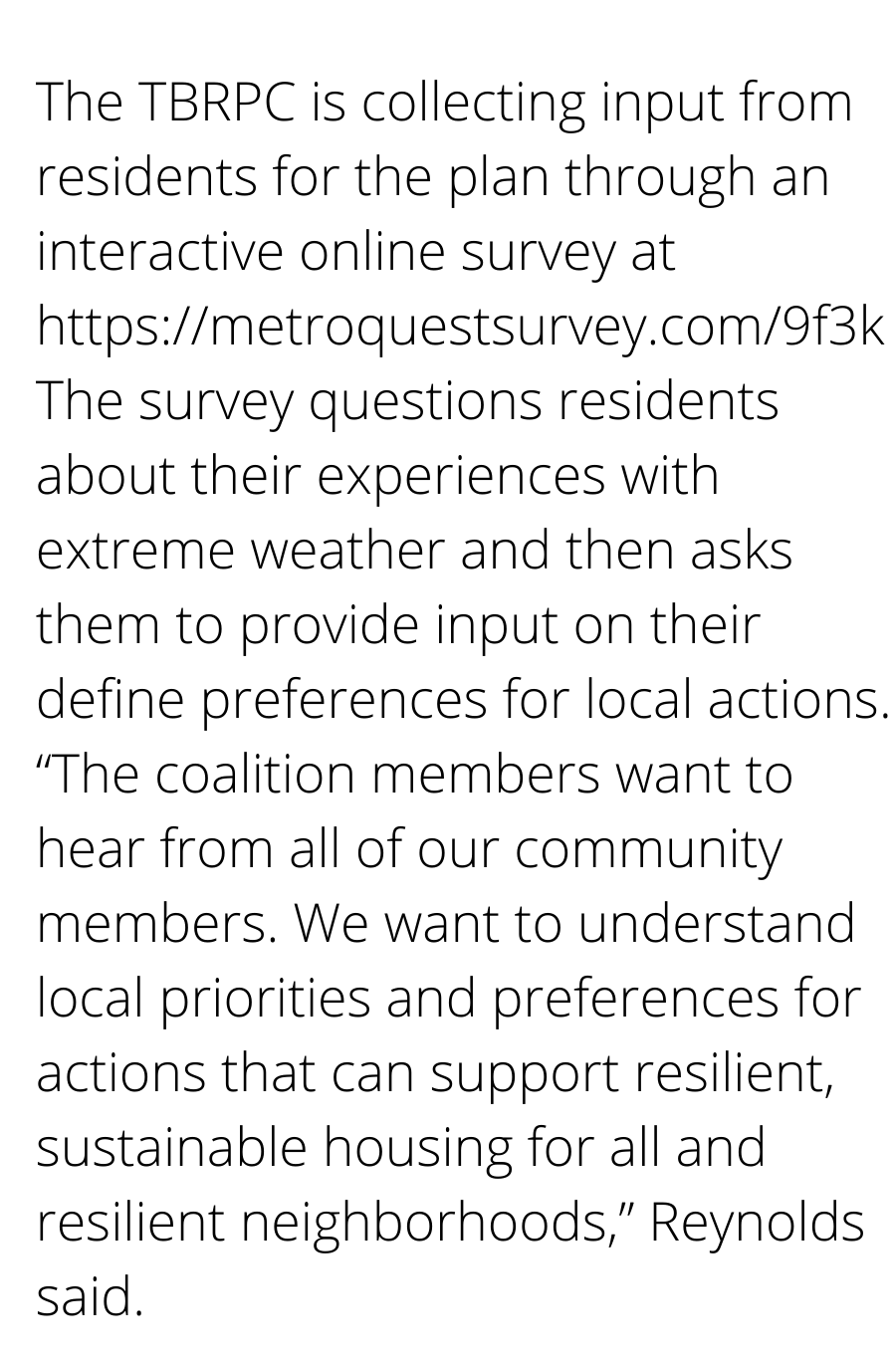 Local, state and regional leaders will meet on April 5 and 6 at the Tampa Bay Regional Resiliency Leadership Summit to discuss progress, challenges, and the path forward to implement the draft Regional Resilience Action Plan.
Local, state and regional leaders will meet on April 5 and 6 at the Tampa Bay Regional Resiliency Leadership Summit to discuss progress, challenges, and the path forward to implement the draft Regional Resilience Action Plan.
Created in 2018 as part of the Tampa Bay Regional Planning Council (TBRPC), the Resiliency Coalition includes 32 city and county governments in an area that stretches from Citrus to Sarasota counties. Participants in the first Resiliency Summit, held in 2020, identified priorities to include in an action plan. Since then, local leaders have developed the draft plan that will be discussed at the Leadership Summit.
 One of the key sessions will be the Mayor’s Panel which will include Mayors Jane Castor (Tampa), Ken Welch (St. Petersburg), Frank Hibbard (Clearwater), and Woody Brown (Largo) discussing their progress and plans for the future.
One of the key sessions will be the Mayor’s Panel which will include Mayors Jane Castor (Tampa), Ken Welch (St. Petersburg), Frank Hibbard (Clearwater), and Woody Brown (Largo) discussing their progress and plans for the future.
“Three hot topics panels will focus on flood risks and insurance, neighborhood-level resilience initiatives, and innovative engineering design and construction for infrastructure that also considers its impact upon neighborhoods,” said Brandi Gabbard, City of St. Petersburg council member and the current chair of the TBRPC.
The innovative infrastructure panel will focus on creating more resilient public infrastructure, services, and assets to mitigate the intensifying impacts of climate change. Moderated by Rod Braun, climate strategy director at the Nature Conservancy, Florida, the speakers include Andy Sternad, architect and urban designer with Waggoner & Ball, Lynette Cardoch, Ph.D., director of resilience and adaptation at Moffatt & Nichol, and Hank Hodde, sustainability and resiliency coordinator for Pinellas County.
“We’re excited to share some of the innovative new adaptation strategies being developed through the Resilient Ready grant that will enhance the capacity of local governments to assess, plan and adapt to flood impacts through the expanded use of multi-functional green infrastructure systems and resilient site design and construction practices,” said CJ Reynolds, said CJ Reynolds, TBRPC’s director of resiliency and engagement.
The Leadership Summit, which is open to the public, will focus on science-based strategies to address the impacts of a rapidly changing environment including flooding, hurricanes, increased frequency of major storms, heat and sea-level rise. The action plan will provide a set of recommendations and guidelines which reflect best practices for local governments to support increased consistency and enable coordinated action across the region. Additionally, it will also identify funding strategies at the local, state and federal levels for mitigation and adaptation projects to reduce impacts and support vital healthy communities, economies, and ecosystems.
